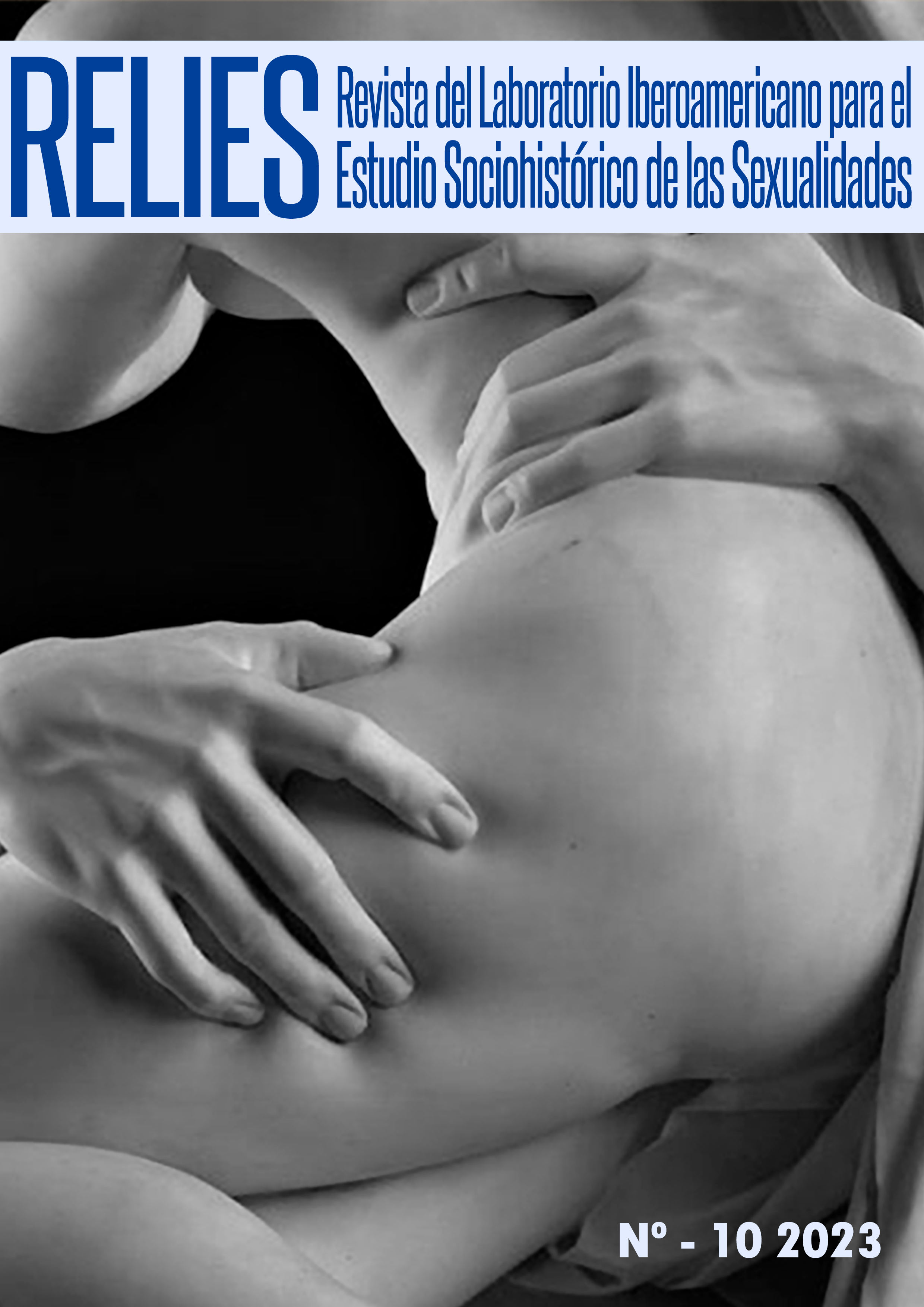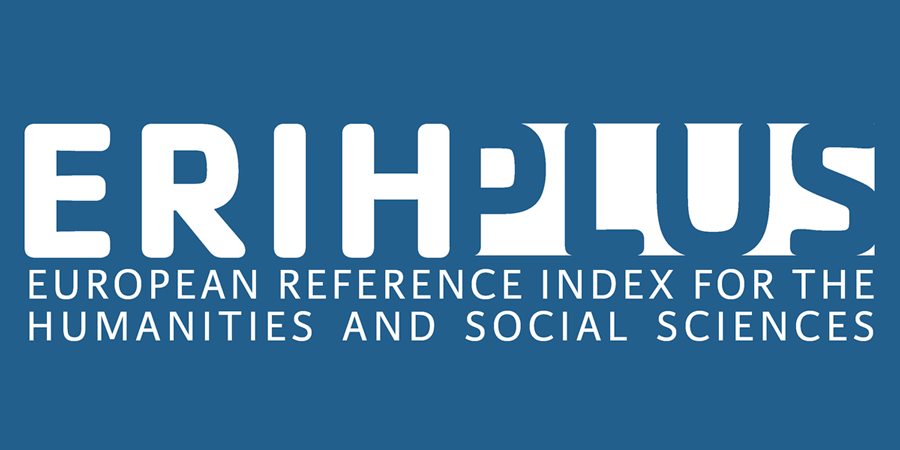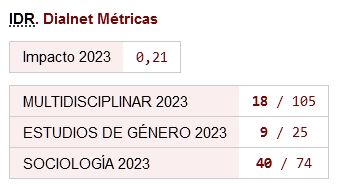What is Taught About LGBT+ Issues in the Psychology Curriculum in Chilean Universities?
DOI:
https://doi.org/10.46661/relies.8242Keywords:
LGBT+ , psychology , curriculum , ChileAbstract
Although it is known that there are differences in the vital and psychic development of heterosexual, cisgender people, and LGBT+ people, the training curricula of health careers include little or no information on these issues. There is no empirical information about this scarcity in the particular case of psychology careers in Latin America. In this context, the Latin American Network of Mental Health Research in Psychotherapy and Mental Health in Sexual and Gender Diversity has decided to conduct a multicenter study to answer the question: What is taught about sexual, affective, and gender diversity in the psychology curriculum? This article corresponds to the results of the pilot study in Chile with a sample of six universities. Ninety-three psychotherapy and mental health programs were reviewed through a systematic review of gray or non-conventional literature. The research results in evidence favoring the null or scarce approach to LGBT+ issues in psychology, finding only six explicit references in the totality of programs reviewed.
Downloads
References
American Psychological Association, Task Force on Gender Identity and Gender Variance. (2009). Report of the Task Force on Gender Identity and Gender Variance. American Psychological Association.
Bidell, M. P. (2016). Mind our professional gaps: Competent lesbian, gay, bisexual, and transgender mental health services. Counselling Psychology Review, 31(1), 67-76. https://doi.org/10.53841/bpscpr.2016.31.1.67
Bimos, P. M. (2019). Discriminación e igualdad: el matrimonio igualitario en la Opinión Consultiva OC-24/17 Corte IDH en Ecuador. FORO: Revista de Derecho, 32, 27-42. https://doi.org/10.32719/26312484.2019.32.2
Bolding, D. J., Rodriguez, V., Nguyen, H., & Drabble, L. A. (2020). Survey of occupational therapy students' attitudes, knowledge and preparedness for treating LGBT clients. Journal of Occupational Therapy Education, 4(2), 1-15. https://doi.org/10.26681/jote.2020.040203
Burnes, T. y Stanley (2017). Introduction. En T. Burnes y J. Stanley (Eds.), Teaching LGBT psychology (pp.3-15). American Psychological Association. https://doi.org/10.1037/0000015-001
Case, K. A., Stewart, B., & Tittsworth, J. (2009). Transgender across the curriculum: A psychology for inclusion. Teaching of Psychology, 36(2), 117-121. https://doi.org/10.1080/00986280902739446
Cochran, B. N., & Robohm, J. S. (2015). Integrating LGBT Competencies into the Multicultural Curriculum of Graduate Psychology Training Programs: Expounding and Expanding Upon Hope and Chappell’s Choice Points: Commentary on “Extending Training in Multicultural Competencies to Include Individual identifying as lesbian, gay, and bisexual: Key choice points for clinical psychology training programs”. Clinical Psychology: Science and Practice, 22(2), 119–126. https://doi.org/10.1111/cpsp.12095
Cooper, M. B., Chacko, M., & Christner, J. (2018). Incorporating LGBT Health in an Undergraduate Medical Education Curriculum Through the Construct of Social Determinants of Health. MedEdPORTAL, 14, 1-6. https://doi.org/10.15766/mep_2374-8265.10781
Correro, A. N., & Nielson, K. A. (2020). A review of minority stress as a risk factor for cognitive decline in lesbian, gay, bisexual, and transgender (LGBT) elders. Journal of Gay & Lesbian Mental Health, 24(1), 2-19. https://doi.org/10.1080/19359705.2019.1644570
Dunne, C. M. (2017). Theoretical and pedagogical perspectives on teaching LGBTQ issues in psychology. In T. R. Burnes & J. L. Stanley (Eds.), Teaching LGBTQ psychology: Queering innovative pedagogy and practice (pp. 39–60). American Psychological Association. https://doi.org/10.1037/0000015-003
Echezona-Johnson, C. (2017). Evaluation of lesbian, gay, bisexual, and transgender knowledge in basic obstetrical nursing education. Nursing Education Perspectives, 38(3), 138-142. https://doi.org/10.1097/01.nep.0000000000000136
Espinoza Romero, M. A., & Rodríguez Jiménez, J. R. (2020). Estudiantes LGBT+ y profesores universitarios. Prácticas de inclusión y exclusión en la educación superior. Voces y silencios. Revista Latinoamericana de Educación, 11(2), 7-29. https://doi.org/10.18175/vys11.2.2020.1
Galáz, C. & Poblete, R. (2019). Políticas públicas educativas y las sexualidades en Chile post-dictadura: opacidades e hiper-visibilidades de sujetos LGTBI. Educar em Revista, 35, 251-269. https://doi.org/10.1590/0104-4060.62610
Gallegos, M. (2010). La primera conferencia latinoamericana sobre entrenamiento en psicología (1974): el modelo latinoamericano y su significación histórica. Psicologia: Ciência e Profissão, 30, 792-809. https://doi.org/10.1590/s1414-98932010000400010
Hafeez, H., Zeshan, M., Tahir, M. A., Jahan, N., & Naveed, S. (2017). Health Care Disparities Among Lesbian, Gay, Bisexual, and Transgender Youth: A Literature Review. Cureus, 9(4), e1184. https://doi.org/10.7759/cureus.1184
Healey, N. M. (2004). Is curriculum in the closet? Instructors' perceptions about gay and lesbian content in Alberta university gender courses [Doctoral dissertation, University of Lethbridge, Faculty of Education]. https://opus.uleth.ca/handle/10133/223
Hope, D. A., & Chappell, C. L. (2015). Extending training in multicultural competencies to include individuals identifying as lesbian, gay, and bisexual: Key choice points for clinical psychology training programs. Clinical Psychology: Science and Practice, 22(2), 105-118. https://doi.org/10.1111/cpsp.12099
Jackson-Levin, N., Kattari, S. K., Piellusch, E. K., & Watson, E. (2020). "We Just Take Care of Each Other": Navigating 'Chosen Family' in the Context of Health, Illness, and the Mutual Provision of Care amongst Queer and Transgender YoungAdults. International journal of environmental research and public health, 17(19), 7346. https://doi.org/10.3390/ijerph17197346
Kaniuka, A., Pugh, K. C., Jordan, M., Brooks, B., Dodd, J., Mann, A. K., Williams, S. L., & Hirsch, J. K. (2019). Stigma and suicide risk among the LGBTQ population: Are anxiety and depression to blame and can connectedness to the LGBTQ community help? Journal of Gay & Lesbian Mental Health, 23(2), 205–220. https://doi.org/10.1080/19359705.2018.1560385
Knockel, L. E., Ray, M. E., & Miller, M. L. (2019). Incorporating LGBTQ health into the curriculum: Assessment of student pharmacists' knowledge and comfort level in caring for transgender patients. Currents in Pharmacy Teaching and Learning, 11(9), 928-935. https://doi.org/10.1016/j.cptl.2019.07.001
Lytle, M. C., Vaughan, M. D., Rodriguez, E. M., & Shmerler, D. L. (2014). Working with LGBT Individuals: Incorporating Positive Psychology into Training and Practice. Psychology of sexual orientation and gender diversity, 1(4), 335–347. https://doi.org/10.1037/sgd0000064
Mara, L. C., Ginieis, M., & Brunet-Icart, I. (2021). Strategies for coping with LGBT discrimination at work: A systematic literature review. Sexuality Research and Social Policy, 18(2), 339-354. https://doi.org/10.1007/s13178-020-00462-w
Mardones Leiva, K., Apablaza Santis, M., & Vaccari Jiménez, P. (2020). Discursividades binarias en las políticas educativas de género y sexualidad en Chile. Estudios pedagógicos (Valdivia), 46(1), 399-411. https://doi.org/10.4067/s0718-07052020000100399
Martínez, C., Tomicic, A., Rodríguez, J., Aguayo, F., Galvez, C., and Rosenbaum, C. (2018). “Chilean psychotherapists’ beliefs, prejudices and clinical competencies for working with people of the sexual and gender diversity” in 49th Annual International Meeting of the Society for Psychotherapy Research; June 27–30, 2018; Amsterdam, Netherlands.
Marrs, S. A., & Staton, A. R. (2016). Negotiating difficult decisions: Coming out versus passing in the workplace. Journal of LGBT Issues in Counseling, 10(1), 40-54. https://doi.org/10.1080/15538605.2015.1138097
McCann, E., & Brown, M. (2020). The needs of LGBTI+ people within student nurse education programmes: A new conceptualisation. Nurse Education in Practice, 47, 102828. https://doi.org/10.1016/j.nepr.2020.102828
Meyer I. H. (2003). Prejudice, social stress, and mental health in lesbian, gay, and bisexual populations: conceptual issues and research evidence. Psychological bulletin, 129(5), 674–697. https://doi.org/10.1037/0033-2909.129.5.674
Ministerio de Educación, Estado de Chile (2022). Mifuturo.cl. Recuperado en junio de 2022, desde https://www.mifuturo.cl/buscador-de-carreras/?tipo=carrera
Ministerio de Educación, Estado de Chile (2017). Políticas e iniciativas inclusivas en universidades estatales [on-line]. https://biblioteca.digital.gob.cl/bitstream/handle/123456789/742/Documento%20sobre%20Politicas%20e%20Iniciativas%20dic2017.pdf?sequence=1&isAllowed=y
Mongelli, F., Perrone, D., Balducci, J., Sacchetti, A., Ferrari, S., Mattei, G., & Galeazzi, G. M. (2019). Minority stress and mental health among LGBT populations: an update on the evidence. Minerva Psichiatrica, 60(1), 27-50. doi:10.23736/s0391-1772.18.01995-7
Moreno, A., Ardila, R., Zervoulis, K., Nel, J. A., Light, E., & Chamberland, L. (2020). Cross-cultural perspectives of LGBTQ psychology from five different countries: current state and recommendations. Psychology & Sexuality, 11(1-2), 5-31. https://doi.org/10.1080/19419899.2019.1658125
Organización Panamericana de la Salud (2017). Abordar las causas de las disparidades en cuanto al acceso y la utilización de los servicios de salud por parte de las personas lesbianas, homosexuales, bisexuales y trans: informe de progreso. https://iris.paho.org/bitstream/handle/10665.2/34220/CE160-INF-8-D-s.pdf?sequence=14&isAllowed=y
Puckett, J. A., & Levitt, H. M. (2015). Internalized stigma within sexual and gender minorities: Change strategies and clinical implications. Journal of LGBT Issues in Counseling, 9(4), 329-349. https://doi.org/10.1080/15538605.2015.1112336
Ramos, E. (2001). La literatura gris y su contribución a la sociedad del conocimiento. 67th IFLA Council and General Conference, Boston.
Romero, A., Goldberg, S., & Vasquez, L. (2020). LGBT people and housing affordability, discrimination, and homeless. UCLA.
Rosario, M., Schrimshaw, E. W., Hunter, J., & Braun, L. (2006). Sexual identity development among lesbian, gay, and bisexual youths: Consistency and change over time. Journal of sex research, 43(1), 46-58. https://doi.org/10.1080%2F00224490609552298
Rueda, M. (2018). El significado del prejuicio sexual en las trayectorias de la identidad con orientación sexual homosexual y bisexual. En N. Molina, E. Rentería y F. Díaz (Eds.), Psicología & asuntos colombianos actuales (pp. 111-140). Universidad del Valle.
Schulenberg, S. (2019). LGBT rights in Chile: On the verge of a gay‐rights revolution?. Sexuality, Gender & Policy, 2(2), 97-119. https://doi.org/10.1002/sgp2.12009
Simoni, J.M. (1996). Confronting heterosexism in the teaching of psychology. Teaching of Psychology, 23(4), 220-226. https://doi.org/10.1207/s15328023top2304_3
The Times Higher Education (2019). World University Ranking. Recuperado en enero de 2019, desde https://www.timeshighereducation.com/world-university-rankings
The Times Hiher Education (2022). World University Ranking 2019. Recuperado en junio de 2022 desde https://www.timeshighereducation.com/world-university-rankings/2019/world-ranking#!/page/0/length/-1/locations/CHL/subjects/3057/sort_by/rank/sort_order/asc/cols/stats
Tomicic, A., Galvez, C., Quiroz, C., Martinez, C., Fontbona, J., Rodriguez, J., Aguayo, F., Rosenbaum, C., Leyton, F. & Lagazzi, I. (2016). Suicide in lesbian, gay, bisexual and trans populations: systematic review of a decade of research (2004-2014). Revista médica de Chile, 144(6), 723-733. https://doi.org/10.4067/S0034-98872016000600006
Tomicic, A., Martínez, C., Rosenbaum, C., Aguayo, F., Leyton, F., Rodríguez, J., Galvez, C. & Lagazzi, I. (2021). Adolescence and suicide: subjective construction of the suicidal process in young gay and lesbian chileans. Journal of homosexuality, 68(13), 2122-2143. https://doi.org/10.1080/00918369.2020.1804253
Valderrama, C. G., & Melis, R. P. (2019). Políticas públicas educativas y las sexualidades en Chile post-dictadura: opacidades e hiper-visibilidades de sujetos LGTBI. Educar em Revista, 35, 251-269. https://doi.org/10.1590/0104-4060.62610
Valdés, T., Olavarría, J., & Molina, R. (2009). Toward an Egalitarian and Non-Discriminatory Order: Teaching Gender and Sexuality at Universities in Chile. International Journal of Sexual Health, 21(4), 253–266. https://doi.org/10.1080/19317610903307308
Weinstock, J. S. (2019). Integrating lesbian, gay, bisexual, transgender, and queer issues in the psychology curriculum. In J. A. Mena & K. Quina (Eds.), Integrating multiculturalism and intersectionality into the psychology curriculum: Strategies for instructors (pp. 75–87). American Psychological Association. https://doi.org/10.1037/0000137-007
Zimlich, R. (2019). LGBT teens and suicide risk: How you can help. Contemporary Pediatrics 36 (3), 34–35. https://search.proquest.com/openview/589c0eb2903c2f68ba58dad01a2c2a53/1?pq-origsite=gscholar&cbl=34319
Downloads
Published
How to Cite
Issue
Section
License
Copyright (c) 2023 Felipe Concha Aqueveque, Claudio Martínez, Christian Spuler

This work is licensed under a Creative Commons Attribution-NonCommercial 4.0 International License.






